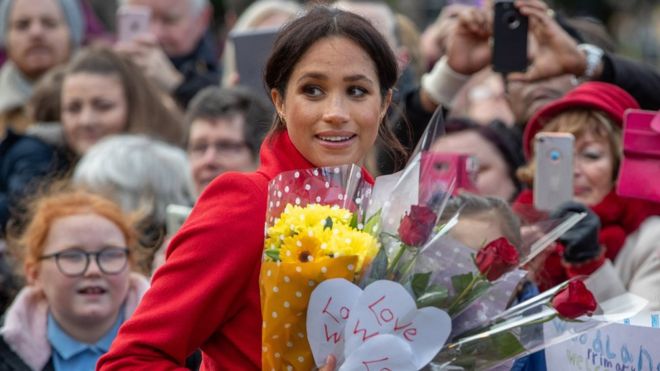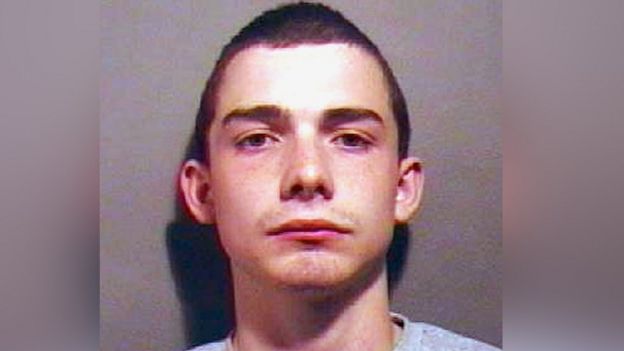Political reporter(wp/reuters):::
British Prime Minister Theresa May urged lawmakers on Monday to take a “second look” at her deal to leave the European Union, a last-ditch effort to win over a parliament that looks set to reject the agreement.
The fate of the United Kingdom’s March 29 exit from the EU is in the balance before Tuesday when parliament is widely expected to vote against May’s deal, opening up outcomes ranging from a disorderly divorce to reversing Brexit.
In the deepest crisis in British politics for at least half a century, May and EU leaders exchanged letters giving assurances on her withdrawal agreement, though there was little sign of a change of heart among rebel lawmakers.
May used a speech at a china factory in the leave-supporting city of Stoke-on-Trent in central England to say that lawmakers blocking Brexit altogether was now a more likely outcome than Britain leaving without a deal.
She then returned to parliament, where she asked lawmakers to give her deal a chance, referring to the assurances she secured from Brussels and warning parliament it risked the break up of the United Kingdom if it voted against the agreement.
“So I say to members on all sides of this House (of Commons) - whatever you may have previously concluded - over these next 24 hours, give this deal a second look,” she said.
“No it is not perfect. And yes it is a compromise,” she said, telling them to think about how any decision will be judged in history books. “I say we should deliver for the British people and get on with building a brighter future for our country by backing this deal tomorrow.”
May has refused to budge over her deal despite criticism from all quarters. The agreement, which envisages close economic ties with the EU, has united the opposing sides of the debate - pro-EU lawmakers who see it as the worst of all worlds, and Brexit supporters who say it will make Britain a vassal state.
As the world’s biggest trading bloc tried to brace for an unpredictable ride, Spain said the EU could agree to extend the deadline for Brexit, but not beyond elections for the European Parliament due in May.
May warned lawmakers on Sunday that failing to deliver Brexit would be “catastrophic” for democracy, and her ministers said thwarting the outcome of the 2016 referendum could lead to a rise in far-right populism.
LETTER FROM EU
As part of the effort to get the deal approved by the British parliament, the EU and May set out some assurances in a choreographed exchange of letters on Monday.
The EU told May that it stood by commitments to find ways to avoid triggering the “Irish backstop” in their Brexit deal and that this pledge had legal weight.
In a joint reply to questions from May, European Commission President Jean-Claude Juncker and European Council President Donald Tusk said the EU stood by its commitment to try and reach a post-Brexit trade deal by the end of next year in order to avoid using the unpopular backstop.
While stressing that nothing in their letter could be seen as changing or being inconsistent with the draft treaty agreed with May last month, they said a commitment to a speedy trade deal made by EU leaders had “legal value” which committed the Union “in the most solemn manner”.
However, even if the target date were not met, they wrote, Britain would have the option to extend a status-quo transition period to avoid triggering the backstop, which is meant to avoid a hard customs border for Northern Ireland.
“If the backstop were nevertheless to be triggered, it would only apply temporarily, unless and until it is superseded by a subsequent agreement that ensures that a hard border is avoided,” they said.
May said the assurances might not go far enough for some lawmakers and the small Northern Irish party that props up her minority government said it was insufficient.
Nigel Dodds, deputy leader of the Democratic Unionist Party, said he could not support the deal, saying his party’s desire to get it renegotiated meant it could not support any move by the opposition Labour Party to press for a no confidence vote.
“PARLIAMENT PLOT”
With no-deal Brexit the default option if May’s deal is defeated, some lawmakers are planning to pull control of Brexit from the government.
Though May is weakened, the executive has significant powers, especially during times of crisis, so it was unclear how parliament would be able to take control of Brexit.
If May’s deal is defeated and the government is unable to have any amended version passed in the next three weeks, one suggestion is for senior lawmakers who chair parliamentary committees to come up with an alternative Brexit plan.
“We’re in the very, very final stages of the end-game here,” said Nick Boles, one of the Conservative lawmakers behind the plan, who said he would vote for May’s deal.
“What we need to do is find the solution, and if the government can’t find the solution - and we want the government to find the solution, and we’ll be voting for her solution - but if it can’t, then parliament needs to,” he told BBC radio.

